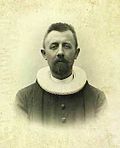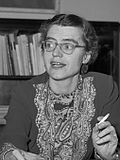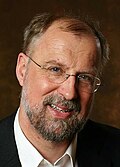| No. | Portrait | Name
(born–died) | Term of office | Political party | Government | Ref. |
|---|
| Took office | Left office | Time in office |
|---|
| 1 |  | Thorvald Povlsen [ da ]
(1870–1948) | 28 April 1916 | 30 March 1920 | 3 years, 337 days | | Social Liberal | Zahle II | [2] |
|---|
| 2 |  | H. Edvard Hass [ da ]
(1866–1946) | 30 March 1920 | 5 April 1920 | 6 days | | Independent | Liebe | [3] |
|---|
| 3 |  | Emil Ammentorp [ da ]
(1862–1947) | 5 April 1920 | 5 May 1920 | 30 days | | Independent | Friis | [4] |
|---|
| 4 |  | Jens Christian Christensen
(1856–1930) | 5 May 1920 | 15 August 1922 | 2 years, 102 days | | Venstre | Neergaard II | [5] |
|---|
| 5 |  | Jacob Appel [ da ]
(1866–1931) | 15 August 1922 | 23 April 1924 | 1 year, 252 days | | Venstre | Neergaard II–III | [5] [6] |
|---|
| 6 |  | Niels Peter Lorentsen Dahl [ da ]
(1869–1936) | 23 April 1924 | 14 December 1926 | 2 years, 235 days | | Social Democrats | Stauning I | [7] |
|---|
| 7 |  | Fritz Bruun-Rasmussen [ da ]
(1870–1964) | 14 December 1926 | 30 April 1929 | 2 years, 137 days | | Venstre | Madsen-Mygdal | [8] |
|---|
| (6) |  | Niels Peter Lorentsen Dahl [ da ]
(1869–1936) | 30 April 1929 | 4 November 1935 | 6 years, 188 days | | Social Democrats | Stauning II | [9] |
|---|
| 8 |  | Johannes Hansen [ da ]
(1881–1953) | 4 November 1935 | 8 July 1940 | 4 years, 247 days | | Social Democrats | Stauning III–IV–V | [10] [11]
[12] |
|---|
| 9 |  | Vilhelm Fibiger [ da ]
(1886–1978) | 8 July 1940 | 9 November 1942 | 2 years, 124 days | | Conservative People's Party | Stauning VI
Buhl I | [13] [14] |
|---|
| 10 |  | Valdemar Holbøll [ da ]
(1871–1954) | 9 November 1942 | 29 August 1943 | 293 days | | Independent | Scavenius | [15] |
|---|
| No Danish government in between August 29, 1943 (1943-08-29) and May 5, 1945 (1945-05-05). Office is assumed by the permanent secretary. [a] |
|---|
| 11 |  | Arne Sørensen
(1906–1978) | 5 May 1945 | 7 November 1945 | 186 days | | Danish Unity | Buhl II | [16] |
|---|
| – | | Hartling, Mads Mads Rasmussen Hartling [ da ]
(1885–1960)
Acting | 7 November 1945 | 12 November 1945 | 5 days | | Venstre | Kristensen Cabinet |
| 12 | | Hermansen, Carl Carl Martin Hermansen [ da ]
(1897–1976) | 12 November 1945 | 13 November 1947 | 2 years, 1 day | | Venstre | Kristensen Cabinet |
| 13 | | Nielsen, Frede Frede Nielsen [ da ]
(1891–1954) | 13 November 1947 | 16 September 1950 | 2 years, 307 days | | Social Democrats | Hedtoft I Cabinet |
| 14 | | Koch, Bodil Bodil Koch
(1903–1972) | 16 September 1950 | 30 October 1950 | 44 days | | Social Democrats | Hedtoft I Cabinet |
| 15 | | Sønderup, Jens Jens Sønderup
(1897–1976) | 30 October 1950 | 13 September 1951 | 318 days | | Venstre | Eriksen Cabinet |
| (12) | | Hermansen, Carl Carl Martin Hermansen [ da ]
(1897–1976) | 13 September 1951 | 30 September 1953 | 2 years, 17 days | | Venstre | Eriksen Cabinet |
| (14) | | Koch, Bodil Bodil Koch
(1903–1972) | 30 September 1953 | 28 November 1966 | 13 years, 59 days | | Social Democrats | Hedtoft II
Hansen I–II
Kampmann I–II
Krag I |
| 16 | | Møller, Orla Orla Møller
(1916–1979) | 28 November 1966 | 2 February 1968 | 1 year, 66 days | | Social Democrats | Krag II Cabinet |
| 17 | | Pedersen, Arne Arne Fog Pedersen [ da ]
(1911–1984) | 2 February 1968 | 11 October 1971 | 3 years, 251 days | | Venstre | Baunsgaard Cabinet |
| 18 | | Bennedsen, Dorte Dorte Bennedsen
(1938–2016) | 11 October 1971 | 19 December 1973 | 2 years, 69 days | | Social Democrats | Krag III Cabinet
Jørgensen I Cabinet |
| 19 | | Damsgaard, Kresten Kresten Damsgaard [ da ]
(1903–1992) | 19 December 1973 | 13 February 1975 | 1 year, 56 days | | Venstre | Hartling Cabinet |
| 20 | | Hansen, Jørgen Jørgen Peder Hansen
(1923–1994) | 13 February 1975 | 30 August 1978 | 3 years, 198 days | | Social Democrats | Jørgensen II Cabinet |
| 21 | | Jensen, Egon Egon Jensen
(1922–1985) | 30 August 1978 | 26 October 1979 | 1 year, 57 days | | Social Democrats | Jørgensen III Cabinet |
| (20) | | Hansen, Jørgen Jørgen Peder Hansen
(1923–1994) | 26 October 1979 | 20 January 1981 | 1 year, 86 days | | Social Democrats | Jørgensen IV Cabinet |
| 22 | | Larsen, Tove Tove Lindbo Larsen
(1928–2018) | 20 January 1981 | 10 September 1982 | 1 year, 233 days | | Social Democrats | Jørgensen IV Cabinet–V |
| 23 | | Koch, Elsebeth Elsebeth Kock-Petersen
(born 1949) | 10 September 1982 | 23 July 1984 | 1 year, 317 days | | Venstre | Schlüter I Cabinet |
| 24 | | Madsen, Mette Mette Madsen
(1924–2015) | 23 July 1984 | 3 June 1988 | 3 years, 316 days | | Venstre | Schlüter I Cabinet–II |
| 25 | | Rechendorff, Torben Torben Rechendorff
(1937–2022) | 3 June 1988 | 25 January 1993 | 4 years, 236 days | | Conservatives | Schlüter III Cabinet–IV |
| 26 | | Andersen, Arne Arne O. Andersen [ da ]
(born 1939) | 25 January 1993 | 27 September 1994 | 1 year, 245 days | | Centre Democrats | P. P. Rasmussen I |
| 27 | | Weiss, Birte Birte Weiss
(born 1941) | 27 September 1994 | 30 December 1996 | 2 years, 94 days | | Social Democrats | P. P. Rasmussen II |
| 28 | | Jensen, Ole Ole Vig Jensen [ da ]
(1936–2016) | 30 December 1996 | 23 March 1998 | 1 year, 83 days | | Social Liberals | P. P. Rasmussen III |
| 29 | | Vestager, Margrethe Margrethe Vestager
(born 1968) | 23 March 1998 | 21 December 2000 | 2 years, 273 days | | Social Liberals | P. P. Rasmussen IV |
| 30 | | Lebech, Johannes Johannes Lebech
(born 1967) | 21 December 2000 | 27 November 2001 | 341 days | | Social Liberals | P. P. Rasmussen IV |
| 31 | | Tove Fergo
(1946–2015) | 27 November 2001 | 18 February 2005 | 3 years, 83 days | | Venstre | A. F. Rasmussen I |
| 32 | | Bertel Haarder
(born 1944) | 18 February 2005 | 23 November 2007 | 2 years, 278 days | | Venstre | A. F. Rasmussen II |
| 33 | | Birthe Rønn Hornbech
(born 1943) | 23 November 2007 | 8 March 2011 | 3 years, 105 days | | Venstre | A. F. Rasmussen III
L. L. Rasmussen I |
| 34 | | Per Stig Møller
(born 1942) | 23 February 2010 | 3 October 2011 | 1 year, 222 days | | Conservatives | Lars Løkke Rasmussen I Cabinet |
| 35 | | Manu Sareen
(born 1967) | 3 October 2011 | 6 December 2012 | 1 year, 64 days | | Social Liberals | Thorning-Schmidt I Cabinet |
| 36 | | Marianne Jelved
(born 1943) | 6 December 2012 | 28 June 2015 | 2 years, 204 days | | Social Liberals | Thorning-Schmidt I Cabinet–II |
| (32) | | Bertel Haarder
(born 1944) | 28 June 2015 | 28 November 2016 | 1 year, 153 days | | Venstre | L. L. Rasmussen II |
| 37 | | Mette Bock
(born 1957) | 28 November 2016 | 27 June 2019 | 2 years, 211 days | | Liberal Alliance | L. L. Rasmussen III |
| 38 | | Mogensen, Joy Joy Mogensen
(born 1980) | 27 June 2019 | 16 August 2021 | 2 years, 50 days | | Social Democrats | Frederiksen I Cabinet |
| 39 | | Ane Halsboe-Jørgensen
(born 1983) | 16 August 2021 | 15 December 2022 | 1 year, 121 days | | Social Democrats | Frederiksen I Cabinet |
| 40 | | Louise Schack Elholm
(born 1977) | 15 December 2022 | 23 November 2023 | 343 days | | Venstre | Frederiksen II Cabinet |
| 41 | | Morten Dahlin
(born 1989) | 23 November 2023 | Incumbent | 2 years, 52 days | | Venstre | Frederiksen II Cabinet |


























